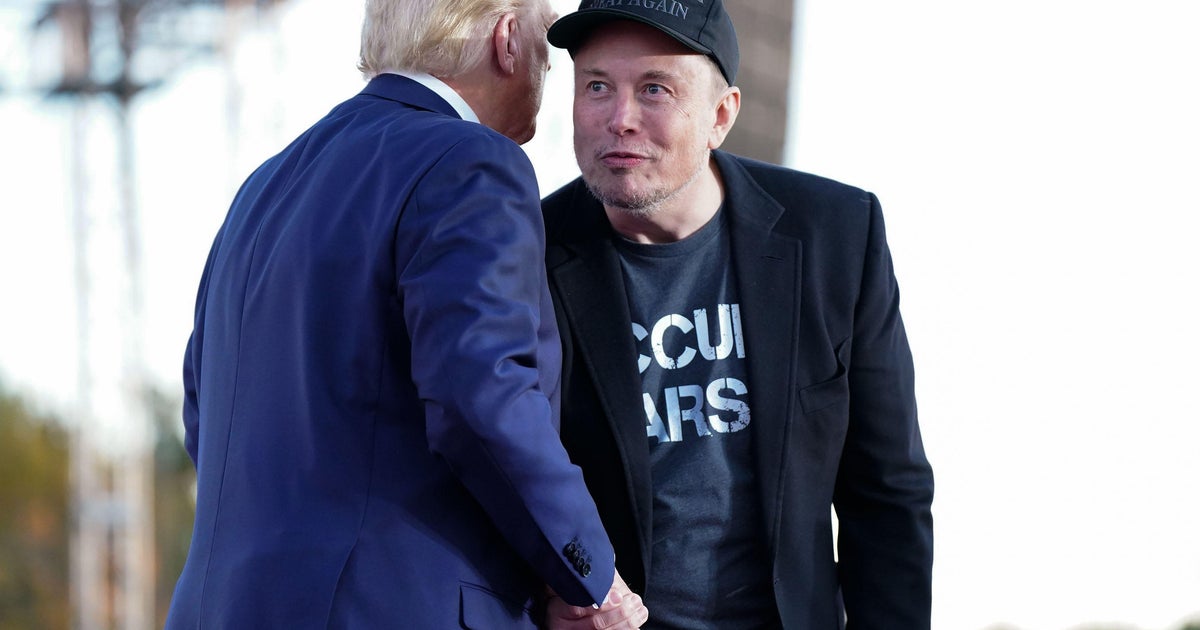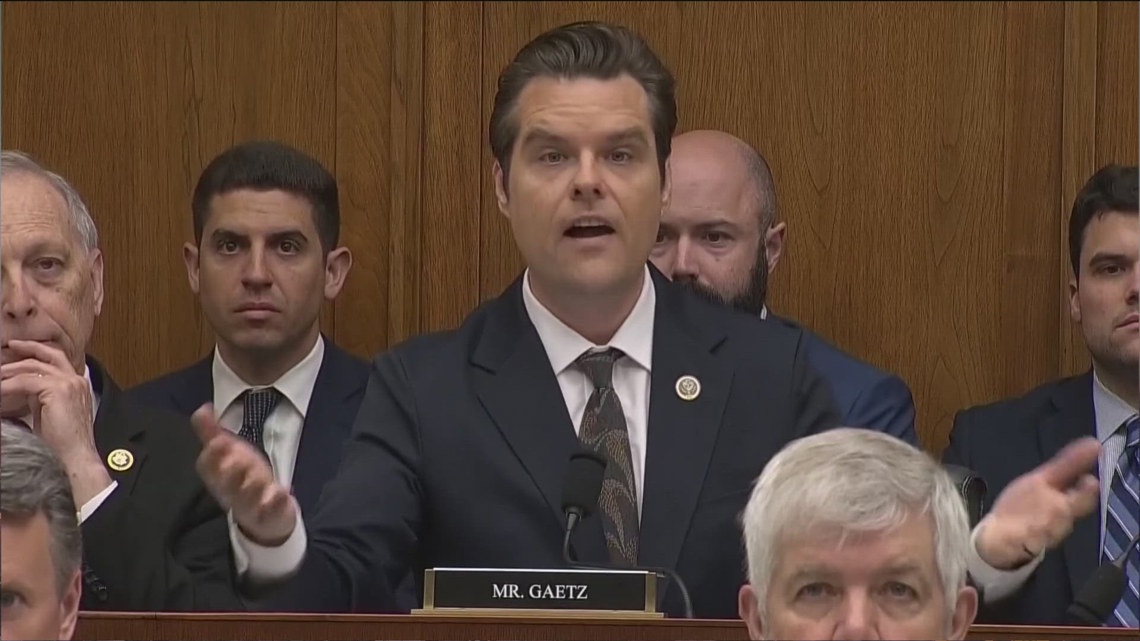CBS News
Trump win could sharply raise the cost of electric vehicles. Here’s why.

With President-elect Donald Trump vowing to pull the plug on the $7,500 tax credit for buyers of electric vehicles, one EV maker and its billionaire owner are fully behind the idea and even stand to profit from it.
“Take away the subsidies, it will only help Tesla,” Tesla owner Elon Musk posted in July on X, the social media platform he owns.
The credit granted to buyers of EVs helped make the case for buying the climate-friendlier vehicles, and when an earlier version of the tax credit was done away with several years ago, Tesla cut prices on its cars by about half of the credit its buyers were no longer receiving.
Tesla is the sole automaker to be generating a profit on its U.S. sales. Manufacturing EVs is a losing proposition for Big Three vehicle makers like Ford and General Motors, who sell a fraction of EVs compared with Tesla.
Once the EV tax credit is vanquished, the price of EVs overall might drop, cutting into Tesla’s profits, as opposed to increasing the company’s red ink as it could for legacy automakers still working to get a firmer footing in the EV market. Should traditional automakers scale back on their EV production and sales to curtail the losses, EV shoppers would have even fewer options, benefiting Tesla.
As Musk touted his support for axing the EV tax credit, Tesla’s auto industry rivals signaled the opposite.
The Alliance for Automotive Innovation urged that the tax credit continue, telling lawmakers in an October letter that U.S. manufacturers count on it as they vie with Chinese EV production. Around the world, vehicle makers have poured billions into transitioning to electric cars.
Further, the Zero Emission Transportation Association on Friday called on Trump to reconsider, saying the tax credit has bolstered employment in states that voted Republican, including Ohio, Kentucky, Michigan and Georgia.
“If the United States is going to continue to fight to bring those jobs here and actually compete to win against China, there needs to be a demand signal — like the New Clean Vehicle Tax Credit — aligned with that goal, otherwise we would be undercutting those investments and hurting American job growth,” ZETA Executive Director Albert Gore stated on Friday.
“The potential elimination of the federal tax credit for electric vehicles by the Trump administration — without another form of incentive to replace it — could derail the trajectory of EV sales in the United States,” offered Edmunds analysts.
Trump repeatedly vowed to eliminate what he labeled President Joe Biden’s “EV mandate” as he campaigned for the White House.
While there is no such mandate in federal law, the Inflation Reduction Act passed during President Biden’s term revived the credit for many EV purchases, while also granting low interest loans to manufacturers constructing EV and battery plants.
Trump’s transition team intends to knock out the credit as part of a broader tax-reform measure, according to a Thursday report by Reuters, which cited two sources with direct knowledge of the matter.
The president-elect during his first term attempted to repeal the EV tax credit, which was expanded by President Biden in 2022.
Analysts who track Tesla concurred with Musk’s view that the credit’s demise would only help his company.
“This is a clear negative for the EV industry at first look and would particularly hurt GM, Ford, Stellantis and Rivian,” wrote Wedbush Securities tech analyst Daniel Ives. Conversely, “this will enable Tesla to further fend off competition from Detroit as pricing/scale/scope is an apples-to-oranges when compared to the rest of the auto industry once the EV tax credit disappears.”
Americans looking to buy an electric car should do so sooner rather than later, advised Ivan Drury, Edmunds’ director Insights.
“The federal tax credit combined with slashed prices due to slowed sales momentum has contributed to electric vehicles becoming labeled as some of the best deals on the market in 2024. Now, with production cuts shrinking supply and a fresh wave of demand from those seeking a deal while they still can, it can be all but assured that the price for that EV you’ve been eyeing is going up in the coming months,” Drury stated.
CBS News
U.S. received Iran’s written assurance it was not actively trying to assassinate Trump

The U.S. received written assurance from Iran before the presidential election that its leadership was not actively trying to assassinate President-elect Donald Trump, CBS News confirmed, according to a source with direct knowledge of the correspondence. The message arrived after the White House in September affirmed that killing a former U.S. president or former U.S. official would be seen by the Biden administration as an act of war.
“We consider this a national and homeland security matter of the highest priority, and we strongly condemn Iran for these brazen threats,” National Security Council spokesman Sean Savett said in a statement in September.
Iran said in its message, which was conveyed by a third party, that it understood this premise. The Wall Street Journal first reported Iran’s message to the U.S.
The Justice Department is currently prosecuting at least two individuals alleged to have been part of murder-for-hire plots to kill Trump while he was still a candidate. One operative working for Iran’s Islamic Revolutionary Guard Corps told federal investigators that he was tasked in September with “surveilling, and, ultimately, assassinating” Trump, according to court records unsealed last week.
Prosecutors said Farhad Shakeri, who is believed to be residing in Iran, told investigators in a phone interview that unnamed IRGC officials pushed him to plan an attack against Trump to take place in October. If the plan could not come together in time, the Iranian officials directed Shakeri to delay the plot until after the election because the official “assessed that [Trump] would lose the election,” the charging documents said.
In early August, a Pakistani national with alleged ties to Iran was arrested and charged with plotting a murder-for-hire scheme targeting U.S. government officials and politicians, according to charging documents unsealed Tuesday.
A U.S. official pointed out that Iran did not task its most effective proxy force, Hezbollah, with carrying out these plots. This official described Iran’s approach to date as “nice if it works. If it doesn’t, then it’s not a problem.”
In response to inquiries suggesting that “Iran told U.S. it wouldn’t try to kill Trump”, the Permanent Mission of the Islamic Republic of Iran said it would not comment on official messages between two countries.
The mission said in a statement, “The Islamic Republic of Iran has long declared its commitment to pursuing Martyr Soleimani’s assassination through legal and judicial avenues, while adhering fully to the recognized principles of international law.”
Trump has raised the ire of Iranians for a few reasons. He exited the international Iran nuclear agreement, which had lifted some sanctions in exchange for restrictions on Iran’s nuclear program. He also directed the 2020 airstrike that killed top Iranian commander Gen. Qasem Soleimani. Since then, some Trump administration officials and military officials received threats from the regime, among them, Robert O’Brien, who was national security adviser during the strike. His predecessor in the job, John Bolton, who was part of the maximum pressure campaign that exerted sanctions pressure on Tehran, has also received threats.
In 2022, the U.S. intelligence community assessed that Iran would threaten Americans — both directly and via proxy attacks — and was committed to developing networks inside the U.S. Two persistent threat assessments submitted to Congress by the State Department in January 2022 cited a “serious and credible threat” to the lives of former Secretary of State Mike Pompeo and former Trump administration Iran envoy Brian Hook. The non-public assessments showed that throughout 2021 and again in 2022, the State Department determined that round-the-clock, U.S.-taxpayer-funded diplomatic security details were needed to protect both men. That continues today.
Multiple former officials have spoken to CBS about duty-to-warn notices that they have recently received from the FBI and other agencies regarding the ongoing threat from Iran and Iranian-hired actors, implying the U.S. is taking the threat seriously and not taking the Iranian regime’s assurances at face value.
contributed to this report.
CBS News
National security implications of Trump’s Cabinet picks

Watch CBS News
Be the first to know
Get browser notifications for breaking news, live events, and exclusive reporting.
CBS News
Doctor explains how RFK Jr.’s plans could affect Americans’ health

Watch CBS News
Be the first to know
Get browser notifications for breaking news, live events, and exclusive reporting.



